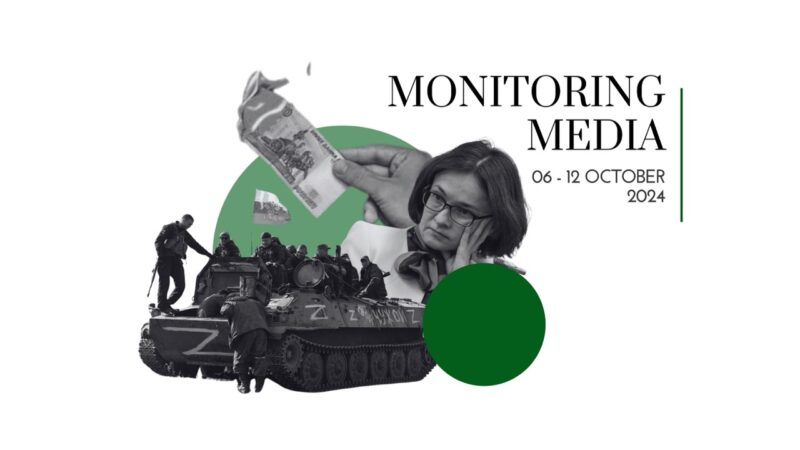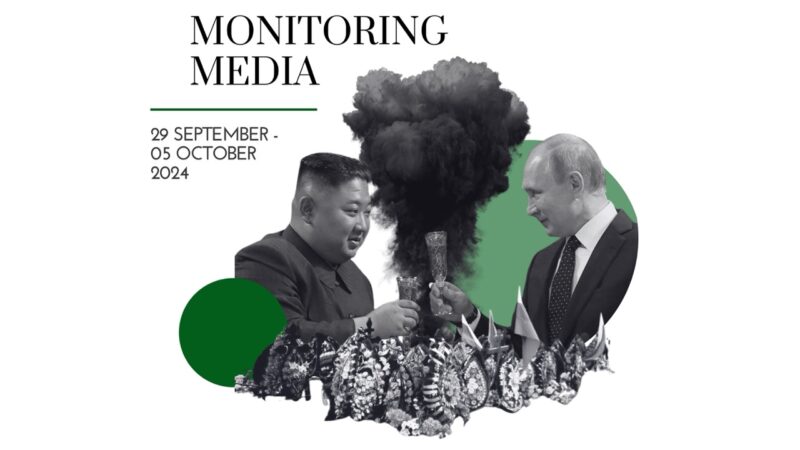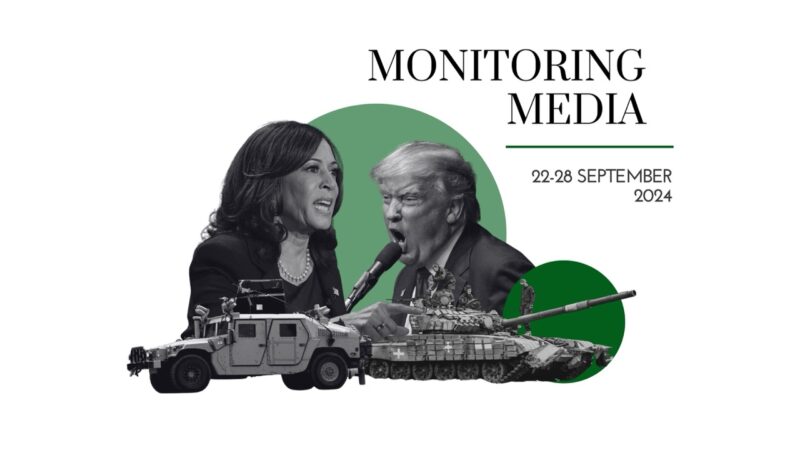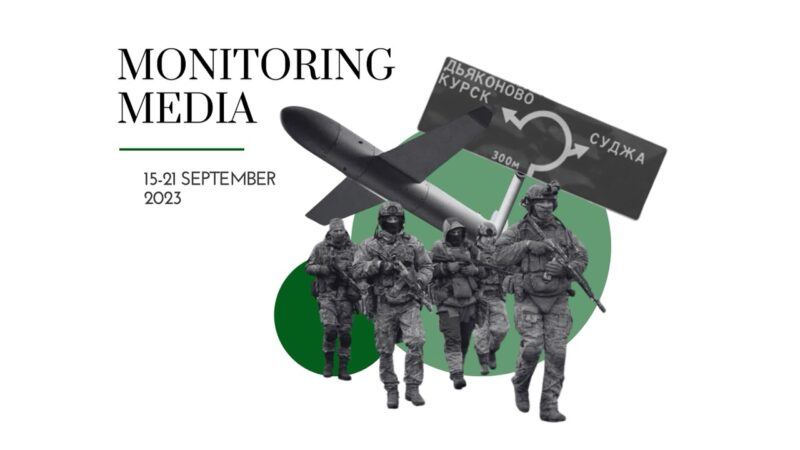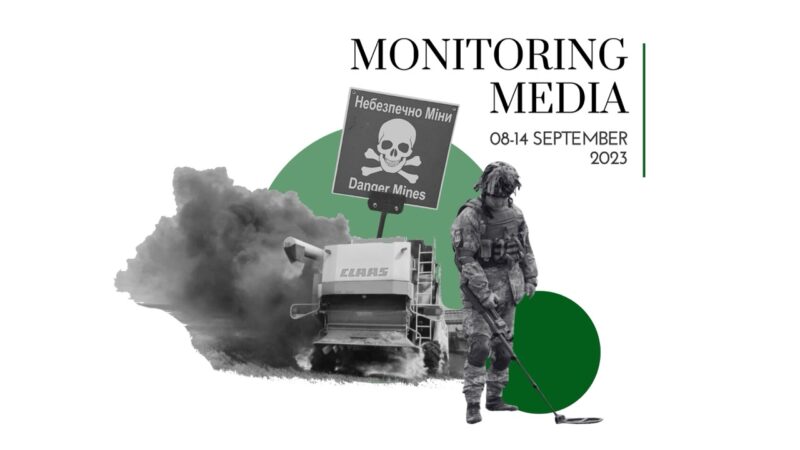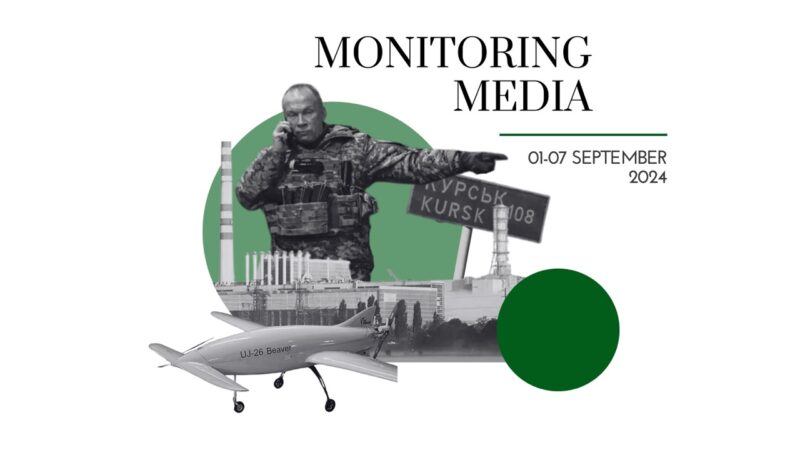The real Russian nuclear threat
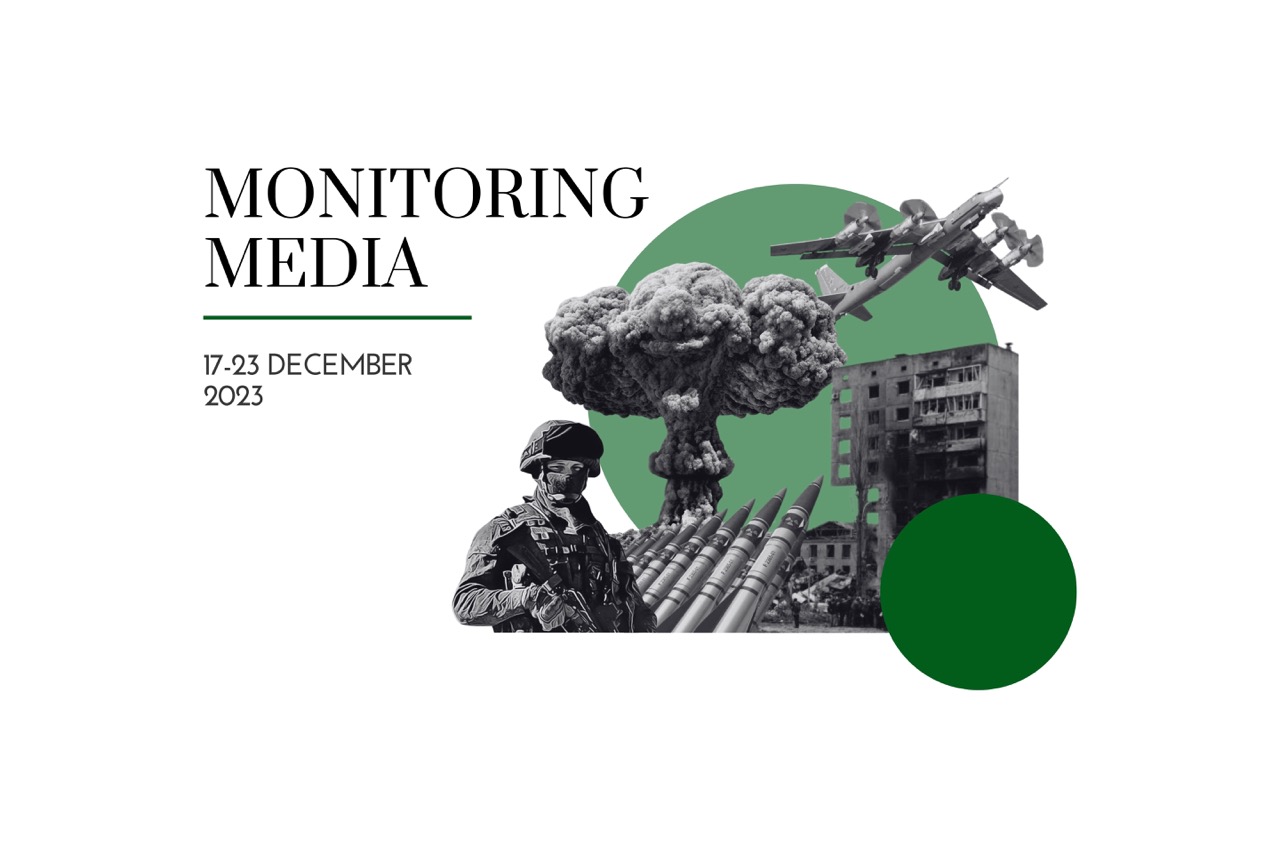
CIUS weekly report on North American media coverage of Ukrainian affairs, 17–23 December 2023
Three publications (Foreign Policy, Foreign Affairs, The Atlantic) were selected to prepare this report on how Ukraine has been portrayed in the North American press during the past week. The sample was compiled based on their impact on public opinion as well as on their professional reputation, popularity among the readership, and topical relevance. These publications represent centrist viewpoints on the political spectrum.
This report covers only the most-read and relevant articles about Ukraine, as ranked by the respective North American publications themselves in the past week. Its scope covers promoted articles on home pages and articles from special sections on Ukraine, with the hashtag #Ukraine, from the paper editions of the publications, and about Ukraine from opinion columns and editorials.
Topics featured in the selected articles:
- The world and Ukraine: What awaits Ukraine and the world if Russia wins; Ukraine’s defence industry needs to be cleaned up.
- Russia at war: Russia threatens to use nuclear weapons.
Main arguments:
What a Russian victory would mean. Adrian Karatnycky (Foreign Policy) argues that a Russian victory in the war would have dire consequences for the entire world. That is why Ukraine’s allies should clearly understand the consequences of Kyiv’s defeat. The likely geopolitical consequences are not difficult to predict, including: (1) encouragement of Russia and other revisionist regimes to continue the precedent of changing borders by force; (2) destruction of the European collective security system; and (3) increased Chinese pressure on Taiwan. According to the author, the ripple effects of US indecision have already begun: “In a move that recalls Russia’s illegal annexation of several regions of Ukraine, Venezuela this month claimed more than half of neighboring Guyana as its own. While there are no signs of an impending invasion, it would be naïve to think that other countries aren’t watching closely to see whether Russia’s land grab succeeds.” However, these threats are minor compared to what awaits Ukraine and its citizens. And no imagination is needed; one need only to switch on Russian state media: “over the past two years, [state television] consistently promoted the rape of Ukrainians, drowning of children, leveling of cities, eradication of the Ukrainian elite, and physical extermination of millions of Ukrainians.” Another example that demonstrates the possible future of Ukrainians in the event of Moscow’s victory is the numerous atrocities and crimes in Russian-occupied territories. Political indoctrination and militarization of young people have become unavoidable features of life under Russian occupation. Deportation of Ukrainian children to Russia with subsequent forced assimilation—which is defined by “by the U.N. Convention on Genocide as a genocidal act”—has become a well-established practice. If Kyiv loses, Ukrainians will face terror on a scale that Europe has not seen since the totalitarian regimes of the 20th century. According to Karatnycky, “Members of the US Congress are free to vote against assistance to Ukraine if they think—wrongly—that the war’s outcome does not affect the US national interest. But they should not be allowed to oppose assistance to Ukraine without being fully aware of the tyranny they will be helping to empower—and their responsibility for the massive and entirely predictable crimes that will ensue.”
The real Russian nuclear threat. Peter Schroeder (Foreign Affairs) emphasizes that Western capitals no longer believe that Moscow will use nuclear weapons against NATO. Officials of the US and other allies of Ukraine are concerned about the possibility of Russia using tactical nuclear weapons in Ukraine, but not that “the war in Ukraine could lead Russia to use its nuclear arsenal against a NATO state, however furious it is at the West for supporting Ukraine.” According to Schroeder, this is a big mistake, and it is more likely that Moscow will use nuclear weapons against NATO than against Ukraine. For the Kremlin, the use of nuclear weapons in Ukraine would not bring any benefit, namely: (1) Tactical nuclear weapons would not be able to turn the tide on the battlefield in Russia’s favour; (2) Nuclear attack would not succeed in breaking the will of Ukrainians; (3) Tactical nuclear strikes would lead to increased support for Ukraine from the West; and (4) A nuclear strike could prompt China and India to abandon Russia. On the other hand, NATO could become the target of a nuclear attack if Moscow sees it as the only way to win the war against Ukraine. According to the author, “Ukraine is too central to the Kremlin’s ambitions—and too secondary to the United States’—for Putin to believe any American threats. Ultimately, Putin will expect the United States to back down before fighting a nuclear conflict over land so far from home.” This could provoke Russia to launch a nuclear strike on NATO immediately after using conventional weapons, hoping that the Alliance would not have time and would not dare to respond in kind. To avoid such an algorithm, Schroeder says that the US should take necessary measures, including: (1) Convince Russian officials, including military commanders, not to make decisions that could lead to a nuclear strike; (2) Convince Russian elites that their country can concede to Ukraine without suffering a catastrophic defeat; and (3) Rally neutral states to delegitimize the use of nuclear weapons. “The only way for US officials, including in the intelligence community, to cultivate dissent among Russian officials is to forge more direct contacts.”
Ukraine’s defence industry needs to be cleaned up. Daniel Block (Atlantic) declares that actively developing its own defence industry will help Ukraine to defeat Russia. Since February 2022, Kyiv has relied heavily on external assistance to defend itself against Russian aggression. However, with a view to internal political processes within the US and EU, Kyiv should reconsider this approach and restore the capacity of the military-industrial complex that it had before the collapse of the USSR: “The republic was home to 750 military factories, including the shipyards that made every Soviet aircraft carrier, as well as plants that produced helicopter engines, ballistic missiles, tanks, and radio-communications systems. On the eve of the Soviet Union’s collapse, Ukraine accounted for a whopping 30 percent of that country’s defence manufacturing.” After gaining independence, Ukraine began to disarm and sell its weapons to third countries: “Over the course of the early 2000s, Ukraine exported tanks, guns, and other types of weapons all over the globe. From 2009 to 2013, it was the world’s eighth-largest arms exporter. In 2012, it was the fourth.” In 2014, after the outbreak of Russia’s war against Ukraine, everything changed. Kyiv began to actively increase production: “Artillery ammunition manufacturing had gone up [twenty-fold] in the previous 10 months, and armored-vehicle production had quintupled. The private sector produced 70 percent of the country’s military purchases in 2022.” In addition to increasing arms production, Kyiv has to overcome another key problem that threatens the state’s defence capability—corruption—a fight Block calls an “investment in the country’s future”. A number of steps have already been taken in this direction: (1) Leadership of the Ministry of Defence has been replaced; (2) Investigations and arrests of officials have been initiated; and (3) Specialized agencies have been established to procure non-lethal and lethal goods for the ministry. Fighting corruption in the defence sector will also bring Ukraine closer to NATO and EU membership. According to Block, “For Ukraine…ending defence corruption may be essential to defeating the Kremlin.”
